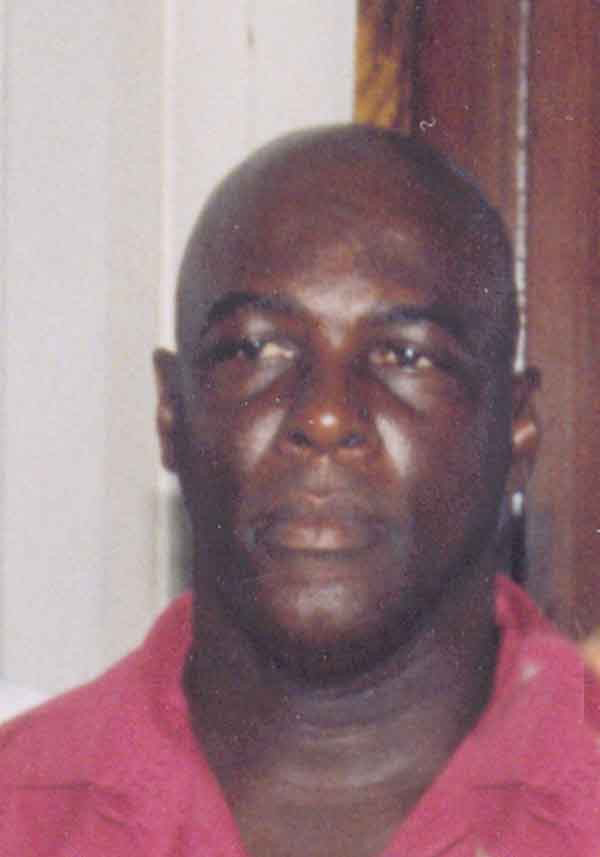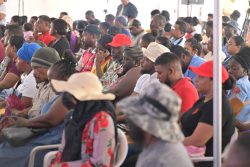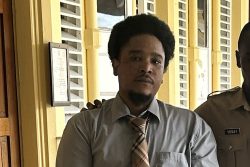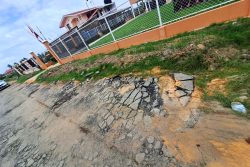Andrew Christopher Garnett of the Guyana Local Government Officers Union has been identified as the nominee from trade unions to be appointed to the Local Government Commission which is still to be operationalised even though several deadlines have passed.
According to the legislation, the commission will be made up of eight members: four nominated by government, one from unions operating in the local government sector and three from the Leader of the Opposition.
On the Order Paper for Thursday’s sitting of the National Assembly is a motion to adopt the first report of the Committee on Appointments in relation to the appointment of a member of the Local Government Commission. Clause 4 (i) (c) of the Local Government Commission Act states that the Committee is responsible for the nomination of “one member, appointed by the President, after approval by the National Assembly upon a nomination by the Parliamentary Standing Committee on Appointments from persons submitted by Trade Unions within the Local Government System.”
 The trade unions consulted in relation to the submission of nominees were the Guyana Public Service Union, the Guyana Local Government Officers Union and the Guyana Labour Union.
The trade unions consulted in relation to the submission of nominees were the Guyana Public Service Union, the Guyana Local Government Officers Union and the Guyana Labour Union.
After deliberations, the Committee on Appointments recommended Garnett as the nominee to be appointed to the Local Government Commission. After the National Assembly signals its approval, President David Granger is expected to appoint Garnett as a member of the long-awaited Commission.
In June, Minister of Communities Ronald Bulkan told Stabroek News that the Commission will be operational by early July. It was the third date the minister has provided for the operationalisation of the commission which will have supervisory powers over local government authorities. He had previously identified March and the end of June. However, the commission is still to be operationalised.
Recently, at a post-Cabinet media briefing, Minister of Natural Resources Raphael Trotman said Cabinet is still to deal with the matter. The opposition PPP/C publicly identified its nominees early last month but the government nominees are unknown.
The PPP/C nominees are former Georgetown Town Clerk Carol Sooba and former Local Government Ministers Norman Whittaker and Clinton Collymore. It has been over two years since laws providing for the establishment of a Local Government Commission were passed. While in opposition, both APNU and the AFC had made calls for the body to be set up.
The Commission is provided for in Guyana’s Constitution. Article 78 (a) reads: “Parliament shall establish a Local Government Commission, the composition and rules of which empower the commission to deal with as it deems fit, all matters related to the regulation and staffing of local government organs and with dispute resolution within and between local government organs.”
The Commission’s functions, outlined at clause 13. (1) of the Act, says that the Commission shall have power to deal with all matters relating to the regulation and staffing of local government organs including employment and dismissal of staff and with dispute resolution within and between local government organs, and in particular, shall monitor and review the performance and implementation of policies of all local government organs, including policies of taxation and protection of the environment;
It also has the power to monitor, evaluate and make recommendations on policies, procedures and practices of all local government organs in order to promote effective local governance; investigate any matter under its purview and propose remedial action to the Minister, whenever or wherever necessary; monitor and review all existing and proposed legislation, and or policies and measures relating to local government organs and to make recommendations for any legislation or any amendments to any legislation and or policy to the Minister; and examine and propose ways of enhancing the capacity of local government organs.
The Commission will oversee not only municipalities and neighbourhood democratic councils (NDCs) but also Regional Democratic Councils as well as Amerindian Villages.










